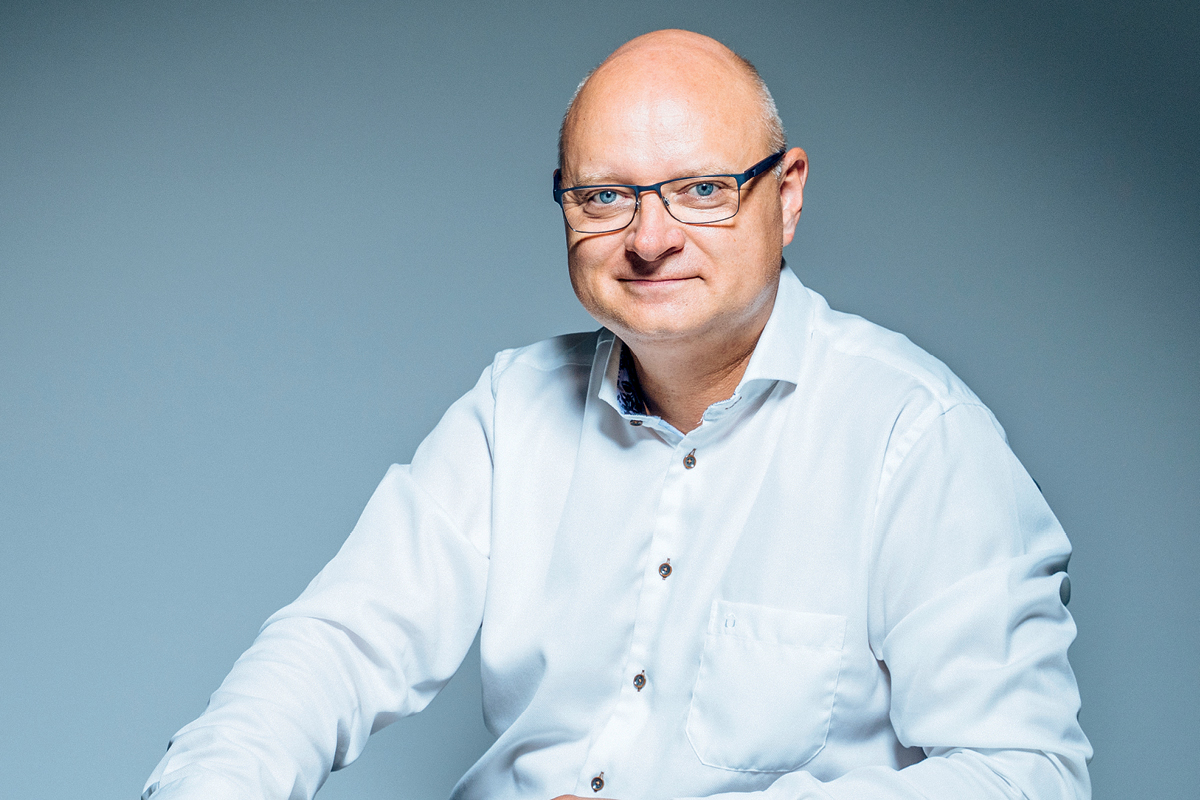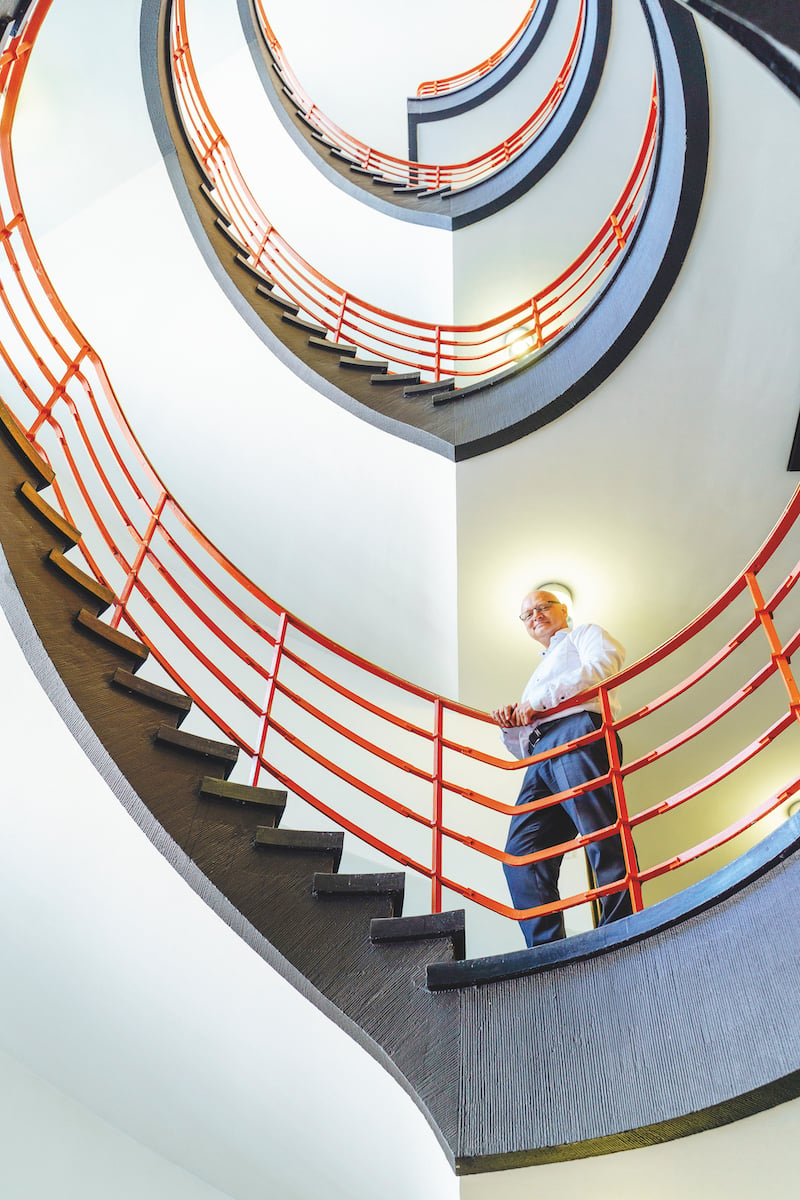Ask Jens Romer Sode and he’ll tell you that, at APL Logistics, Brexit isn’t a dirty word. For the Regional Vice President, Europe, Middle East and Africa, it’s a synonym for opportunity. “We are the first to believe that the UK will rebound and there will be better days,” he tells The CEO Magazine.

Along with Britain, he names Germany, Benelux and Turkey as the other key European markets for the supply chain experts. “These are countries where we have an established presence, strong customers and the right people in place to make a difference to the existing solutions on offer,” he says.
The challenge of growing the company’s business on the continent was exactly what attracted Jens to the role in March 2018. “APL Logistics had typically been rather America- and Asia-centric and had not really been known as a player here in Europe,” he explains.
“Today, we really want to spark some new energy into the organisation, win some brand new customers and take the company’s European business to another level.”
The approach, he explains, has been threefold. “First, we wanted to deploy a high degree of IT; to offer our customers self-service opportunities, but also to lower our transaction costs and overheads,” he says.
“The second piece of the strategy was that we have strived for a customer base that is growing so we can grow and develop with them. Finally, considering that APL Logistics has a presence in all major markets, we also wanted to utilise our global network to the benefit of our customers.”
The implementation of this master plan hasn’t been without tough decisions. “Part of our strategy is to part ways with customers and logistics partners, where we can no longer generate value in line with market expectations,” he explains.
“Going forward, we really want customers who have the maturity and sophistication to integrate with us and their partners to build a very IT-driven, modern type of supply chain.”
From barcode scanning and apps that offer real-time tracking to more complex solutions that draw upon artificial intelligence to better predict and forecast purchase order loading and available cargo space, Jens emphasises just how much of a game-changer this company-wide focus on IT is proving to be.
“As we regulate our processes, we are gaining more speed,” he says, adding that, as always, time is money and money is time. “We are also not as dependent on people being at work on time,” he continues with a grin. He points out that every single innovation has been client led.
“We don’t sit in the backroom and develop something and then go and see if there’s a market for it,” he explains. “The more we can standardise and automate, the more our customers can grow their supply chain without having to add any capex or salary costs. So, in general, these changes are being well received.”
“The more we can standardise and automate, the more our customers can grow their supply chain without having to add any capex or salary costs.”
Another advantage of cutting-edge IT solutions? Data. “We do spend a lot of time understanding and translating data into business opportunities,” Jens acknowledges.
“We can benchmark our clients’ business towards a certain industry, which is extremely valuable and gives us a lot of ideas on how we turn the supply chain into a strategic competitive advantage point.”
Jens explains that retail logistics comprises the core of its business, followed by industrial (mining, energy and manufacturing) and automotive logistics. From clothing and apparel (including “a lot of shoes”, he laughs) to do-it-yourself equipment such as power drills, hammers and screws, and even new cars, APL Logistics moves “a little from everywhere to everywhere”.

Yet, while some of its peers take a full-service approach to logistics, Jens says that the company has made a conscious decision to focus on the areas it does really well.
“We are under absolutely no illusion that we want to do it all ourselves,” he says.
“In areas away from our core competences – be it transport or technology – it’s far more efficient to partner with somebody who has the expertise and agility in that area and we can put the pieces of the puzzle together into a nice logistics picture for our customers.”
The same philosophy also extends to geographical expansion. “Sometimes we go in with our own set-up and other times we turn to a partner because they know the market better than us, and if we were to build up equivalent competences, it would require too much time and money,” he says.
The company is continuing to invest in Dubai and the UAE, Saudi Arabia, Jordan and Egypt. Oman, in particular, has been singled out as a big player of the future while South Africa, Madagascar and Ethiopia are considered strategic African markets.
“These are important markets where we can help the big brands,” Jens explains. Having spent his entire career in supply chain logistics, Jens names digitisation and sourcing as two of the biggest transformations he has witnessed during his time in the industry.
“Life was a bit simpler in the late 80s and throughout the 90s,” he recalls. “The developed markets were buying a lot from China and South-East Asia and sending almost empty containers back.”
Today’s supply chain involves even greater complexities. “In the case of fashion, you’ll have the tops coming from one country and the skirts coming from another, but they have to be in the shop at the same time.”
Ensuring everything is in the right place at the right time brings both challenges and job satisfaction. “I often say we turn the supply chain into a strategic weapon,” Jens says.
Unlike many competitors, the company doesn’t own any planes, ships or trucks. “We don’t have a warehouse that needs to be filled or a certain shipping schedule that we need to sell space on,” he explains.
For Jens, this translates into a huge market advantage. “We are free to tailor-make any solution for customers. The asset light model has worked well for us and enabled APL Logistics to stay competitive and grow with limited capital requirement.”
CSR (Corporate Social Responsibility), especially initiatives surrounding sustainability, is increasingly being used as a value add and differentiation in internal logistics.
“We can use supply chain data at purchase order level to compare customers to best-in-class competitors and, if they are polluting more, we can help them to understand their supply chain and see if there’s an opportunity to improve it.”
Internally, APL Logistics is prioritising rail and short sea shipping over road transport, where possible. “It may take a little bit more time, but it comes at a lower cost and the environmental impact is also significantly lower.”
Yet, above all else, people remain the biggest investment and focus area. “The most important thing is to set the right team,” Jens says.
“We have spent a lot of time figuring out what that means exactly, in terms of business opportunities, research and development, key account management and talent development. After all, you can buy all the technology in the world and you can set up an office and start meeting customers, but if they don’t like what they see, with a proven track record, they won’t buy it.”


